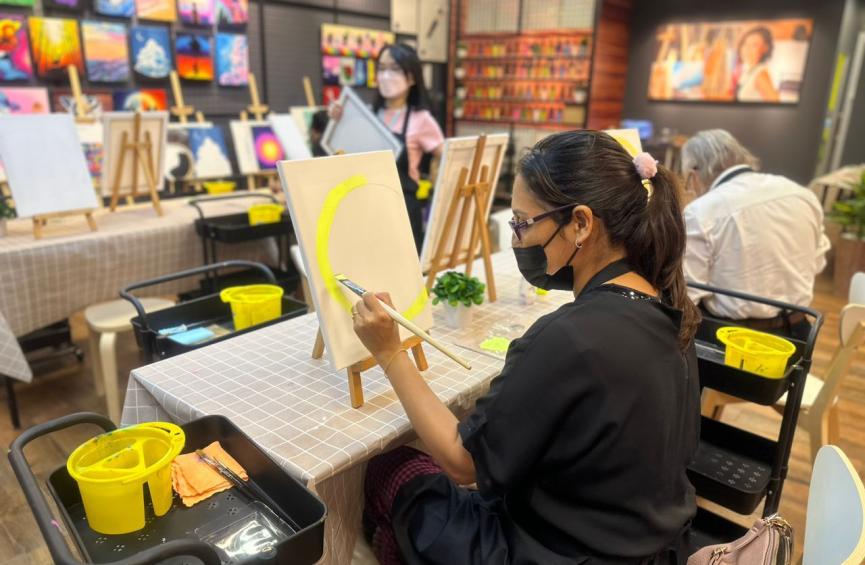Art has long been recognised as a powerful form of self-expression. From painting and sculpture to music and dance, art allows individuals to communicate their thoughts, emotions, and experiences in a unique and profound way. But did you know that art expression can also have a positive impact on mental health?
1. Release for Emotions
One of the key benefits of engaging in art expression is its ability to serve as an outlet for emotions. When we create art, we have the opportunity to channel our feelings into something tangible. Whether it’s painting a vibrant canvas or writing a heartfelt poem, this act of creation can provide a sense of release and catharsis. If you listen to this video, the sound of the sand on the canvas was truly satisfying.
2. Fostering Self-Discovery
Artistic expression can also play a crucial role in self-discovery and personal growth. Through the process of creating art, individuals are often able to explore their innermost thoughts and feelings. It is also crucial to pick art facilitators who allows you to pick your own colours and guides you through your creative expression. This introspection can lead to greater self-awareness and understanding, which in turn contributes to improved mental well-being. According to Dr Barbara Bagan, creative art provide older adults with multiple benefits, which is enhanced cognitive function.
3. Promoting Mindfulness
Engaging in artistic activities requires focus and concentration, which naturally lends itself to mindfulness practices. When we immerse ourselves in the creative process, we become fully present in the moment, allowing worries and stressors to fade into the background. This state of mindfulness has been shown to reduce anxiety and promote relaxation.
4. Building Resilience
Art expression can also help individuals build resilience by providing an avenue for coping with adversity. By expressing difficult emotions through art, individuals are better able to process their experiences and find meaning within them. This can lead to increased emotional resilience and an enhanced ability to navigate life’s challenges.
5. Connecting with others
Art has a unique ability to connect people across cultures, languages, and backgrounds. Through shared appreciation for artistic creations, individuals can forge meaningful connections with others who may be experiencing similar struggles or joys. This sense of connection and belonging is essential for maintaining good mental health.
In conclusion, art expression is a powerful tool that can positively impact mental health. By providing an outlet for emotions, fostering self-discovery, promoting mindfulness, building resilience, and facilitating connections with others, art enables individuals to navigate the complexities of life with greater ease and well-being. So whether you’re picking up a paintbrush, picking the acrylic paint colours, remember that engaging in artistic endeavours can be a valuable form of self-care for your mental health.
If you are looking for a space to cater for your self-care needs, feel free to contact
Artime Rawang. Weekend classes availabe at a very affordable price. Teacher Sherene Lim & Jie Si are really helpful. You don’t need to be a skilled or amateur artist, they will turn you into one. FREE painting guidance is provided.
Written by,
Drona Dewi
Chief Wellness Officer
Mental Health Response Instructor
DISCLAIMER: This communication does not provide medical advice. The information, including but not limited to, text, videos, graphics, images and other material contained in this communication are for informational purposes only. Always seek the advice of your physician or other qualified healthcare provider with any questions you may have regarding a medical condition or treatment and before undertaking a new health care regimen, and never disregard professional medical advice or delay in seeking it because of something you have read in this message or in materials or websites referred to herein. We do not examine, diagnose or treat, or offer to treat or cure or attempt to cure, any mental or physical disease, disorder or illness, or any physical deformity or injury; and we do not recommend or prescribe, or recommend changing dosage or discontinuing, any prescription medications or pharmaceutical drugs.


